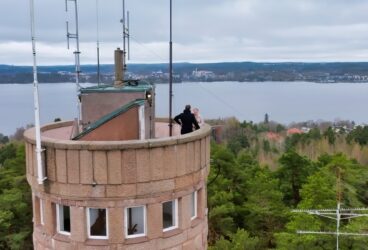The quantum technology race – can quantum computers influence superpower politics?

The upcoming quantum computers are not the result of a rapid development leap, but rather a steady progress over approximately 20 years. The old Moore’s Law, which describes the pace of development in information technology in general, can also be applied to quantum technology: quantum computers have more qubits and capacity year after year.
“Our prediction is that within two years, we may reach a point where quantum advantage is achieved: a quantum computer can solve certain problems faster than a classical computer, which refers to a desktop computer, laptop, mobile phone, or supercomputer,” says Hannu Kauppinen, CEO of QMill Oy.
However, the quantum computer is not the supercomputer of the future, even though its computing power is predicted to become vastly superior to classical supercomputers.
“In the future, classical computers will work together with quantum computers. Quantum computers can be seen as accelerators for supercomputers, in the same way that artificial intelligence is their accelerator today,” Kauppinen explains.
Race between companies and states
Although quantum computers have been developed for about twenty years and the moment when quantum advantage is achieved is on the horizon, the quantum computer race has not yet reached the final sprint.
“This is such a long race that it doesn’t fit into just one competition. Achieving quantum advantage is like a semi-final. When that advantage is achieved, the semi-final winners will advance to the final competition. There we will see another interesting match of a different kind,” Kauppinen envisions.
“There are different technology options in the development of quantum computers. Currently, the so-called superconducting quantum computers are the furthest along in development, with Finnish IQM and computer manufacturer IBM being very advanced. There are other options, such as optical technologies and neutral atoms. Very recently, Microsoft published results on topological qubits,” Kauppinen says.
In the quantum race between states, the situation is similar to the competition between companies. Large states play with big stakes, which can give them an advantage, but smaller states like Finland can also enter the track.
“In the United States, one billion dollars is invested annually in quantum computing research. In Europe, for example, the United Kingdom is starting a new ten-year research programme with an investment of 2.5 billion pounds, and France has a 1.8 billion euro research programme. Large countries invest heavily,” Kauppinen says.
“In Finland, about 50 million euros are invested annually in research, and we have a long tradition in this field. For example, the state invests in quantum computing through VTT research centre, leading to the construction of a new three hundred qubit quantum computer in Finland,” Kauppinen says.
Can quantum technology be used as a weapon?
Historically, technological superiority has often been a guarantee of success for states. In theory, quantum technology could offer an unbeatable advantage to capable states if its benefits are given to the defence industry to use.
“Quantum technology is part of national cybersecurity and defence in Finland and other countries. It produces export products for Finland in the defence industry. We must be actively involved in development and seek funding opportunities, which NATO also offers,” Kauppinen says.
“Quantum technology is predicted to become a business worth hundreds of billions within 15–20 years. Finnish and European companies need to understand that patents have value in this business. They must commit to IPR terms where inventors receive fair compensation for their inventions,” Kauppinen reminds.






